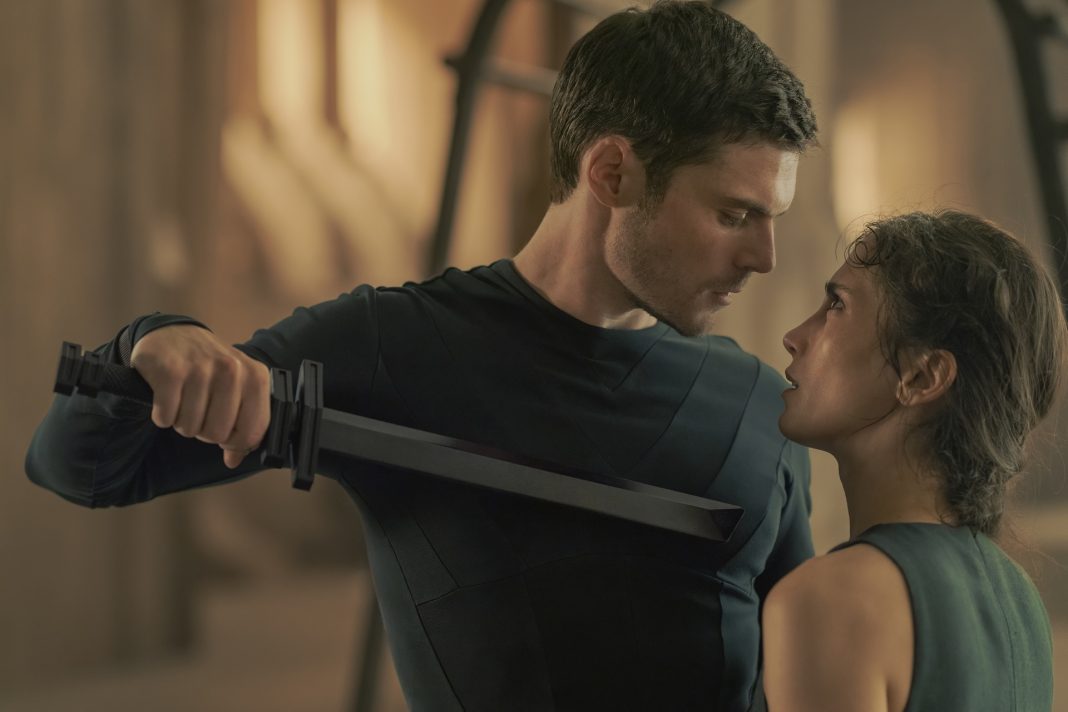Move over Game of Thrones, Rings of Power, and Wheel of Time.
There’s a new sweeping fantasy drama on the scene with a stable of excellent British actors, impressive CGI and costuming, and lofty ambitions to be the next big thing.
Dune: Prophecy debuted on HBO last night with a first hour-long episode “The Hidden Hand.” A prequel to the events of Dune, the new series begins 10,148 years before Paul Atriedes and the Spice Wars, and if you can believe it, Timothée Chalamet.
We are introduced to Harkonnen Sisters Valya (Emily Watson) and Tula (Olivia Williams), leaders of the fabled Bene Gesserit sect who shape the future by strategically planting the power behind the thrones of various houses with their truth-divining and future-knowing Sisters.
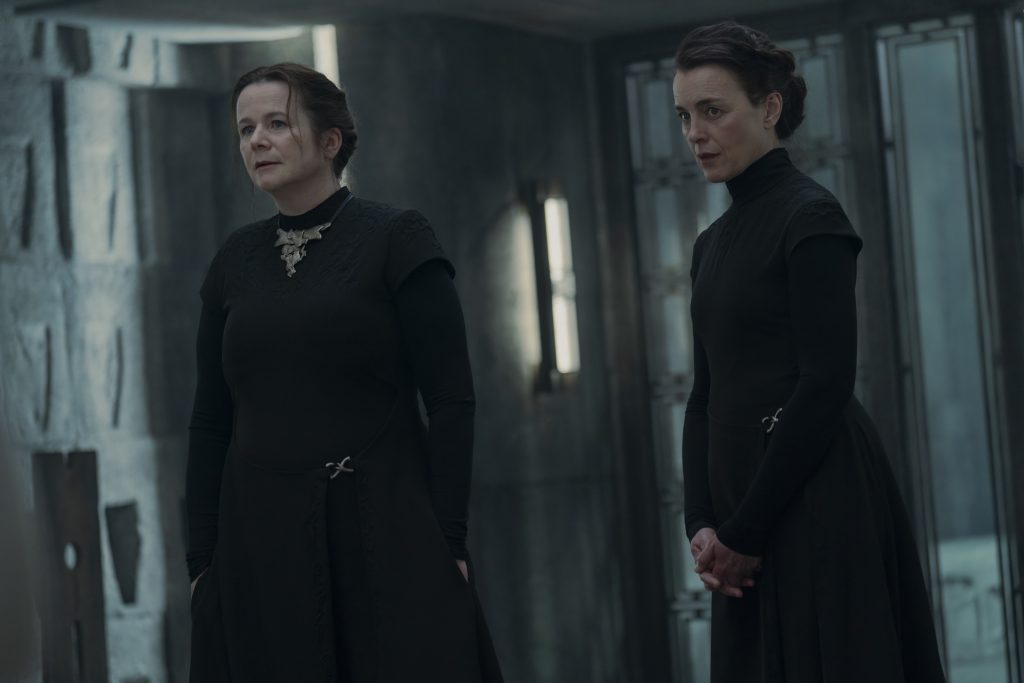
But first, a lengthy Terminator-style flashback shows us that 30 years prior, humanity finally defeated the last ‘thinking machine technology’ and outlawed those who sought to use it. Among the outcast are young Valya and Tula, who find a place among women “who are unafraid of their power.”
Valya and Mother Superior, Raquella (Cathy Tyson) really hit it off, sharing the same vision for the future as they do. If current leaders can be unpredictable, or war-mongering, or cruel, why not simply breed better future leaders? There is a lot of angst in the first 15 minutes over whether tampering on a genetic level is such a good idea. Is it better to guide the path or create the path forward? A vision of the future suggests the sisterhood will be wiped out if they don’t step in with their genetic succession plan, but others are unsure. However, after the natural death of Raquella, and not very natural death of her successor by Valya’s own hand, all the obstacles to total power and a peaceful and prosperous future seem to finally fall away.
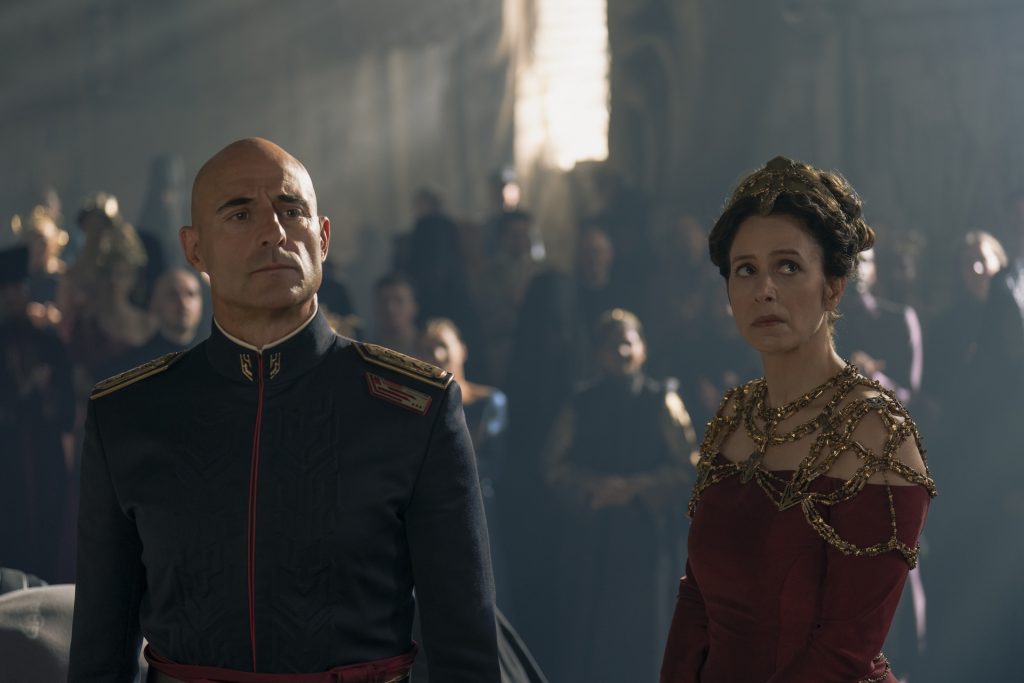
Cut to 30 years later and things seem pretty on track for new Mother Superior Valya and the Sisters. Valya is currently determined to arrange a wedding between the Emperor’s daughter, princess Ynez Corrino (Sarah-Sofie Boussnina), and young prince Pruwet Richese (Charlie Hodson-Prior).
Game of Thrones style, Pruwet turns out to be a nine year old boy. But it’s ok. Ynez will join the Sisterhood for a decade while he grows up, giving Valya plenty of time to bend and shape the young princess and her fabulous genes to her will. However not everyone is onboard with the arrangement, including Pruwet’s parents, and Ynez’s longtime advisor Sister Kasha (Jihae) who has a nightmarish (and frankly kind of difficult to decipher?) vision suggesting the wedding will bring about the very end the Sisters want to avoid. Valya is determined it won’t, and is keen to shut down any dissenting voices to the contrary.
Events overtake all the worries and doubts when Desmond Hart (Travis Fimmel, who excels at playing hot unpredictable outsiders), a charismatic but unpredictable soldier who is seeking to ally himself with the Emperor, takes matters into his own hands and murders both the obnoxious young Pruwet and Sister Kasha with mind powers no one knew he even had.
To be honest, although pretty gruesome, the murders, occurring just a moment before the credits rolled came with an almost sense of relief. Finally! Something happened!
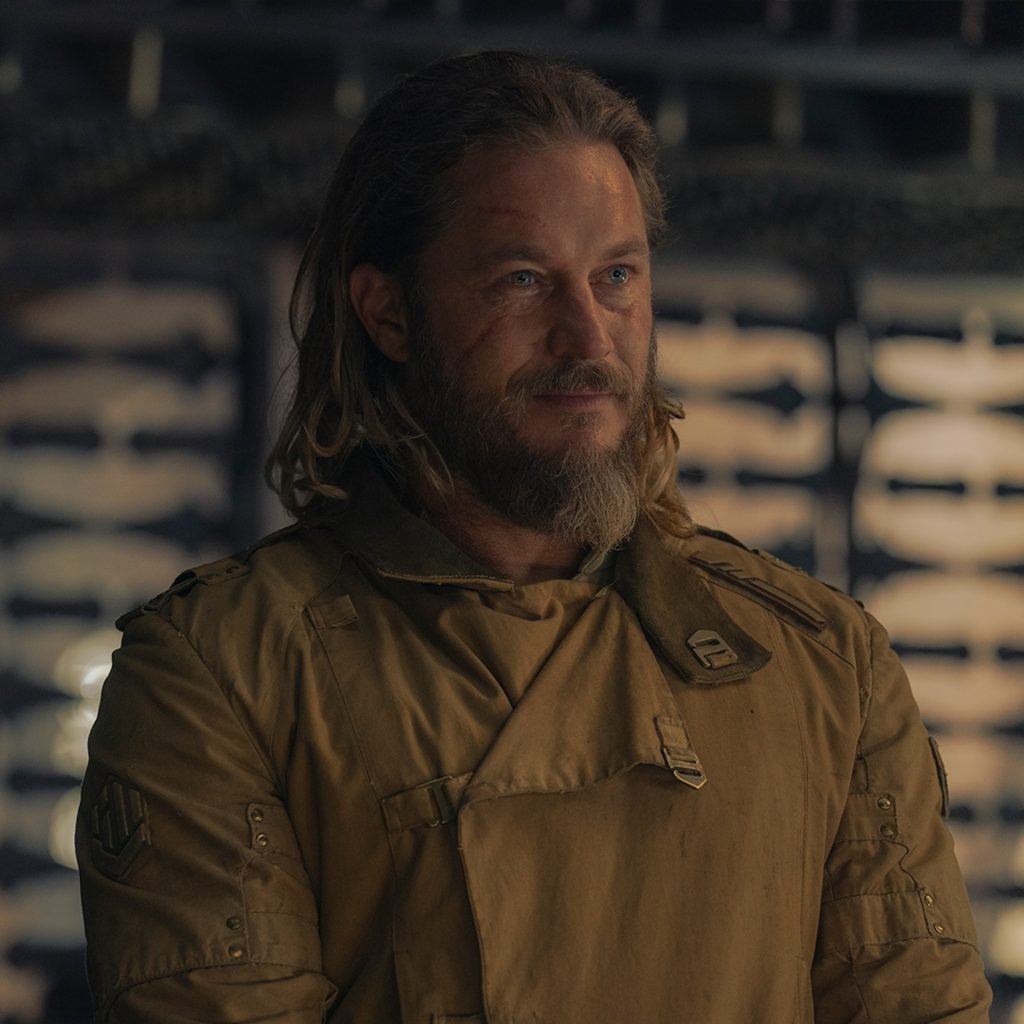
Despite the lavishness and costuming, and enormous CGI sets, Dune: Prophecy struggles under the crushing weight of too much exposition throughout its hourlong first episode. Although the show draws upon the Great Schools of Dune novel trilogy by Brian Herbert and Kevin J. Anderson, it strives to break new ground in many areas, which is great. Such fantasy empire building takes time, and requires hard work. However watching the fruits of those labors shouldn’t be hard work for a TV audience.
Every scene takes place in a grand desolate hall or throne room, and involves two characters engaging in an ethics debate. All the characters in Dune: Prophecy have a lot to say, but in the end they all express the same thoughts — doubts about the future, worries about the correct course of action, the pros and cons of various decisions, and their ultimate place in the world. With so many characters to introduce over the course of the first hour, these conversations, endlessly repeated, become more than a little numbing.
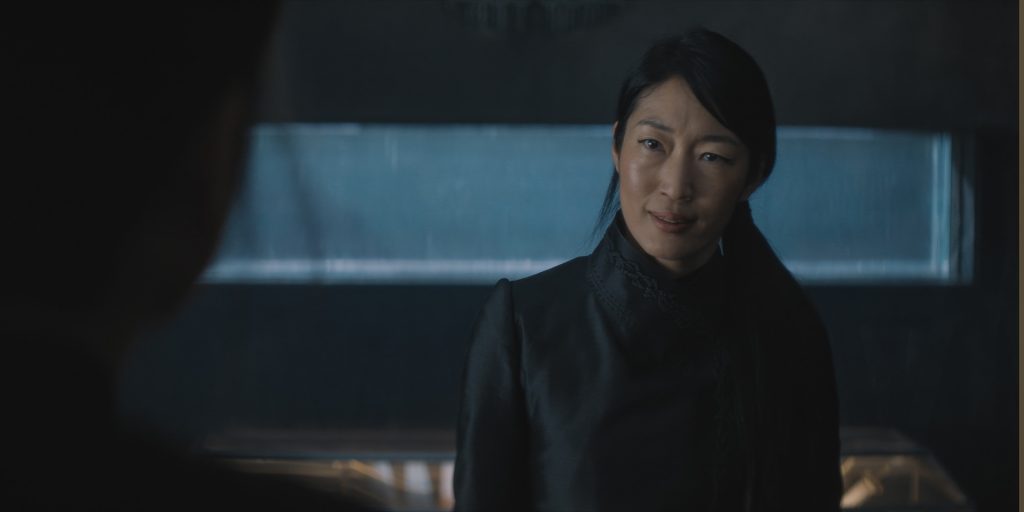
To boot, dialogue, especially of the voiceover variety is a bit cringy at times. Characters will say things that aren’t quite coherent, but sound cool as long as we don’t give it too much thought: “Humanity’s greatest weapon is the lie,” and “What holds more truth: history or prophecy?” being two eye-rolling examples.
Another TV show might have chosen to throw in an action scene or two between all the navel-gazing, but with so much plot to get across, and so many new characters to introduce, there is simply not enough time. In fairness, we are treated to one scene of Princess Ynez sparring with Swordmaster Keiran Atreides (Chris Mason), and another with the pair getting it on in a nightclub on the eve of her marriage to Pruwet, but neither scene is enough to lift the turgid tone of the hour.
Although there’s much to like in Dune: Prophecy’s debut, the show needs to let in some light and air into future episodes or run the risk of being crushed by its own overblown and ponderous sense of importance.
Dune: Prophecy continues Sundays at 9 p.m. on HBO.
Follow us @TVPulseMag on X and @TVPulseMag.com on BlueSky for more TV news and reviews this season.
